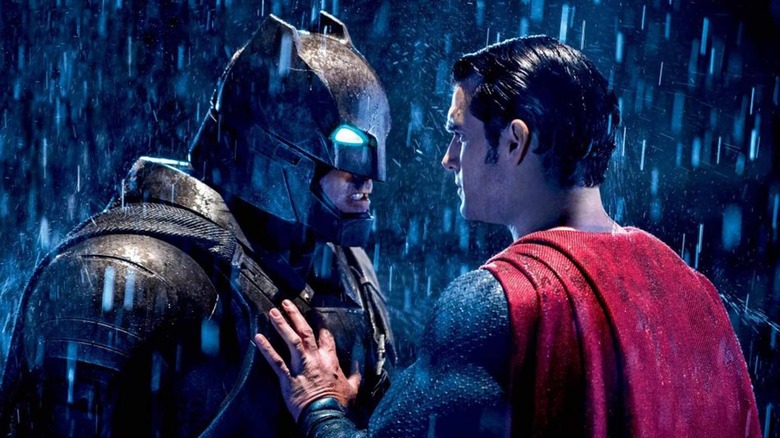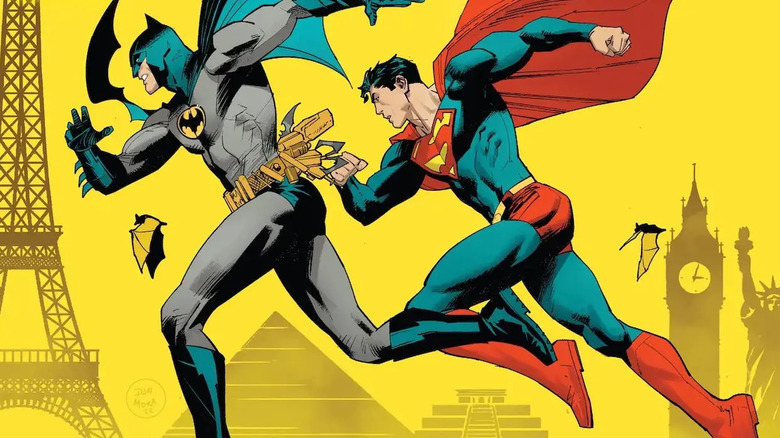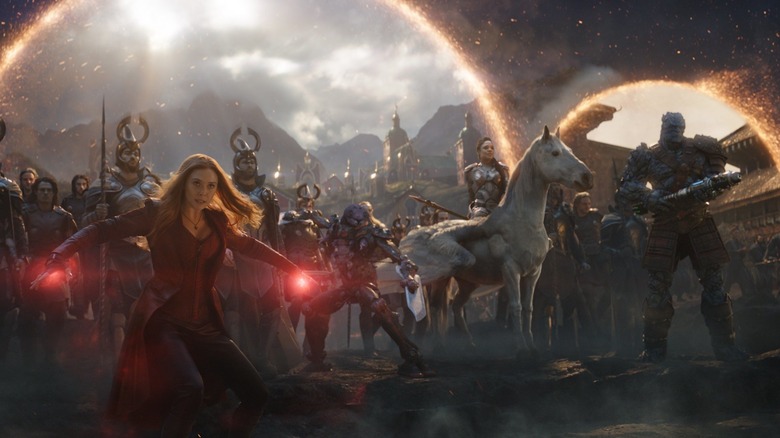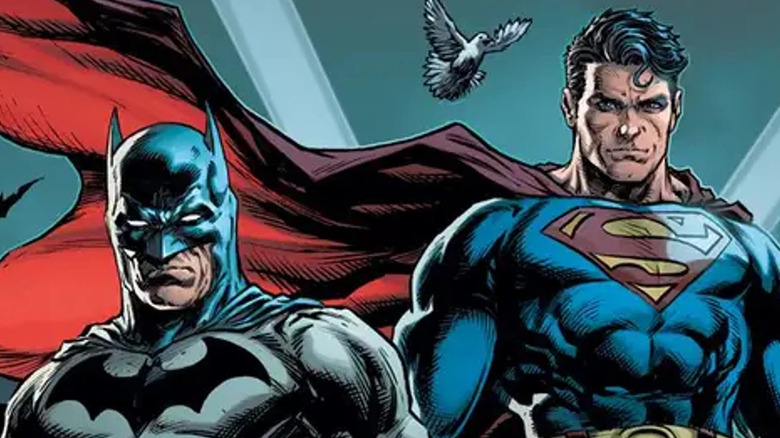Can Marvel Use Batman & Superman In The MCU Once They Enter Public Domain? Our Expert Explains
Lately, it feels like historically well-known pop-culture characters keep entering the public domain, only to be promptly dropped into a low-budget movie parody. 2023 saw a version of Winnie the Pooh enter the world of gore-soaked slashers with "Winnie the Pooh: Blood and Honey," and 2024 will bring a take on Mickey Mouse into the bloody subgenre with "Mickey's Mouse Trap." As more intellectual property rights expire, this trend of repurposing iconic characters into new (and unlikely) worlds will likely continue. But could this fate also happen to comic juggernauts Superman and Batman amidst the DC Universe and the Marvel Cinematic Universe's heydey? Could Marvel even use DC's characters in their films and shows?
Well, it's complicated! So, DC's most famous heroes will enter the public domain in 2034 and 2035, respectively — 95 years after their debuts, per U.S. copyright law. Lois Lane will become public at the same time as Superman. The following years will see other famous DC players like the Joker (2036) and Wonder Woman (2037) follow suit. But copyright law is a tricky thing to navigate.
To investigate this comic conundrum further, Looper spoke with veteran entertainment lawyer and intellectual property expert Tre Lovell of The Lovell Firm. The short answer is: Yes, Marvel and Disney could technically use Batman and Superman once they enter the public domain. But it isn't as simple as opening a multiversal portal and poofing the Dark Knight into play.
Only the original versions of DC's characters will enter the public domain
As many on the Internet recently discovered, you're only free to use the versions of public domain characters that have reached the end of their IP exclusivity. In the case of Mickey Mouse, who entered the public domain in 2024, only the aspects of Mickey that existed in "Steamboat Willie" and other Mickey shorts from 1928 are available for widespread adaptation. The same principle would hold true for Batman, Superman, Wonder Woman, and other DC characters' future use.
"Marvel can only use the original versions of DC characters that enter the public domain," Tre Lovell told Looper. "Any additional elements or adaptations created by DC will continue to be protected." That includes other characters — like Robin or the Joker — as well as specific costume designs, story beats, or items like the Batmobile. Of course, as the years go by, more and more of those details that were added later by DC will join Batman himself in the public domain.
How Marvel could bring Batman and Superman to the MCU
If Marvel Studios were to bring Batman into the MCU, the company would be pretty limited in how it could use the character. Only traits from his 1939 appearances could be used at first — things like his cape and cowl, black and gray color palette, utility belt, and Bruce Wayne identity.
"Marvel just has to be careful not to incorporate any of DC's adaptations or other protected property and stick to the original depiction of the characters," Tre Lovell told Looper. "In addition, Marvel should ensure that there is no confusion that the newly 'public' Batman and Superman are their own versions and not associated with DC's versions." This is the key: making sure that whatever version of the character Marvel might use is clearly (and legally) separate from DC's iterations. That might sound easy enough, but it's not as simple as it sounds.
"DC may also have trademark rights in the characters to the extent that using a character in a similar fashion as DC may confuse the public into thinking that it's a DC character," Lovell added. Trademarks are separate from copyrights and can include things like the Superman "S" logo and Batman's iconic bat signal, both of which are indeed held as trademarks by DC.
Would the MCU ever use DC characters, or is it too much hassle?
Sure, Marvel would absolutely be able to use characters like Batman and Superman in future projects ... but it might not be worth the hassle. Marketing such inclusion would be treacherous territory due to DC's many trademarks, and the pool of content available for adaptation would initially be severely limited. "DC should continue to add elements and make minor changes to its characters to further separate them from the original, unprotected characters," Tre Lovell advised. "In addition, the more DC portrays its characters in alliance with 'DC characters,' the more people will acquaint them with DC and strengthen trademark rights."
Of course, there are other considerations as well, such as brand dilution. Marvel might not be interested in centering characters that will never fully be theirs to control. As long as DC continues to make tweaks to its roster, the modern versions of its heroes and villains will always fall under its control exclusively, and lesser uses from a rival like Marvel could even help build brand awareness for DC's projects.
Let's not forget that blockbuster comic book movies may no longer reign supreme by the time DC's characters enter the public domain. DC and Marvel have struggled at the box office over the last couple of years. In reality, Batman and Superman's public domain debuts will probably be accompanied by more indie comics and low-budget horror parodies than cross-brand cameos.



